Next Tuesday (25th August) Uruguay celebrates the 190th anniversary of its independence. Not a minor thing if you look at a map of South America. We’re the (relatively) tiny country (the size of England and Wales combined) between mega Argentina and enormous Brazil. How we ever got to actually become independent at all still fascinates me (I love Uruguayan history), the gaucho land right in the middle of the Spanish and Portuguese empires, “colonised” by Spain, invaded by the Portuguese (and the Brazilians afterwards) and fighting an English invasion, too.
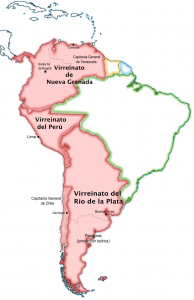
It wasn’t easy. But we had help. Lord Ponsonby came to the rescue (thanks, Britain). Apparently, he wanted “something” between what are now Brazil and Argentina, a friendly state on the River Plate (and therefore accessing the continent through its fluvial system). A historian once named Ponsonbyland and he probably wasn’t exaggerating.
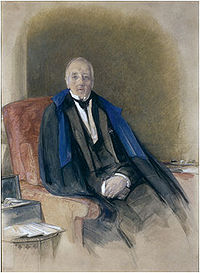
Lord Ponsonby
Britain had a lot of influence on Uruguay at the very early stages and even before then. During the fights for independence, our national hero, José Artigas, signed the first trade treaty that our not-then-quite-defined country had, with the English, back in 1817. Our first free trade agreement, apparently. Wish he had one now…
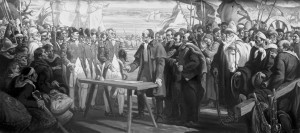
Signing our first FTA. How times have changed.
As was the case with the rest of South America, Britain traded heavily with Uruguay back in those days. The influence can still be seen today both in Montevideo, in rural areas (and at rural shows) and in many towns, like Fray Bentos.
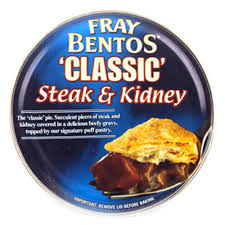
The former Anglo factory in Fray Bentos is now a Unesco World Heritage Site.
But then things changed. And we drifted apart.
So what now?
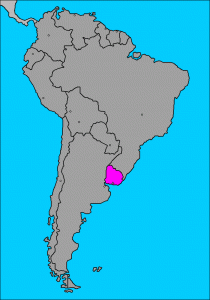
There are many reasons why British companies still choose to do business with Uruguay. It’s a small country (3.4m people) so it’s an ideal test market. It’s also a country with high GDP per capita, compared to the rest of the continent. Strategically located between Argentina and Brazil, it has also become an administrative and logistics hub for its fellow Mercosur countries and beyond. Some sectors are particularly strong compared to the population, such as the financial sector, agritech, software/technology, and tourism. Those are just some of the reasons.

Gola Store in Montevideo, Uruguay
British products and services are highly regarded in Uruguay because of their quality. British businesspeople are also highly respected because of their honesty, dependability and politeness. Uruguayans tend to be open to Britain and fond of its design, language, education, technology, engineering and tourism. I’m a real life example of that. Ended up in Durham to study Economics, lived 13 years in the UK (Ponsonby would have loved to have me in his team!) and then returned to Uruguay with a now Anglo-Uruguayan family. I love my fish ‘n’ chips as much as my dulce de leche, after all!
Uruguay is distinctively different from Brazil, one of its neighbours, and any Uruguayan will tell you that despite the fact that we look and sound very similar to Argentines, we are very different, particularly when doing business. The worst thing you can do is to “package” Uruguay with either of its neighbours (or with Paraguay, just because they sound similar, we don’t even border Paraguay!).

Uruguay might not be your top priority when exporting to Latin America, but I would recommend that you at least consider it. Ponsonby opened the doors. Make the most of it.
